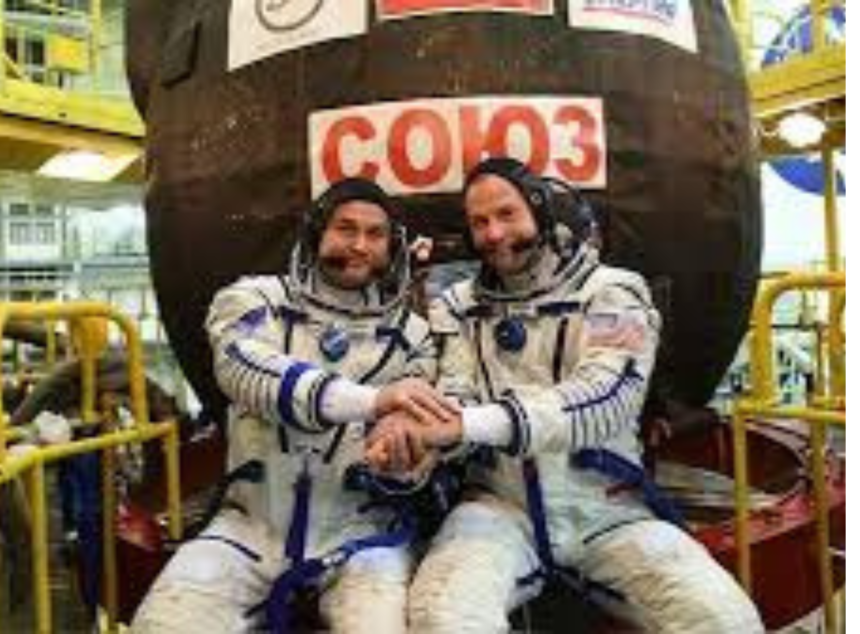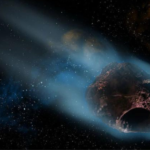
NASA astronaut Nick Hague is set to command the upcoming SpaceX Crew-9 mission to the International Space Station (ISS), continuing his distinguished career in space exploration. With a strong military background and experience aboard the ISS, Hague has become a key figure in NASA’s efforts to advance human spaceflight through the Commercial Crew Program.
Early Life and Academic Foundations
Born on September 24, 1975, in Belleville, Kansas, Nick Hague displayed a passion for science and engineering from an early age. His academic journey took him to the prestigious U.S. Air Force Academy, where he earned a Bachelor’s degree in Astronautical Engineering. He further honed his technical skills by earning a Master’s degree in Aeronautics and Astronautics from the Massachusetts Institute of Technology (MIT). These achievements laid the foundation for his future career as a leader in aerospace and space exploration.
Military Service and NASA Selection
Hague’s professional career began in the U.S. Air Force, where he served as a colonel and flight test engineer. His role involved developing and testing new aircraft systems, a skill set that would later prove invaluable during space missions. Hague’s work in this field earned him a reputation as a disciplined and innovative engineer, making him a strong candidate for NASA’s astronaut program.
In 2013, NASA selected Hague as part of Astronaut Group 21, a significant milestone that marked the start of his space exploration career. His military background, coupled with his technical expertise, made him an ideal fit for the rigorous demands of space travel and scientific research.
First Spaceflight: Expedition 59 and Spacewalks
Hague embarked on his first space mission as part of Expedition 59 aboard the International Space Station in 2019. During his six-month stay, Hague was involved in conducting critical scientific experiments that focused on human health in space, biotechnology, and Earth observation. His work contributed to expanding NASA’s understanding of the long-term effects of space travel on the human body.
Hague also performed two spacewalks during this mission, where he helped to upgrade the ISS’s power system by replacing aging batteries. These spacewalks were essential for maintaining the station’s functionality and ensuring its ability to continue supporting cutting-edge research for years to come.
Surviving the Soyuz MS-10 Launch Failure

In 2018, Hague’s resilience and training were put to the test when he survived a Soyuz MS-10 launch failure. During a routine mission to the ISS, the Soyuz spacecraft suffered a booster malfunction, forcing an emergency abort shortly after liftoff. Hague and his Russian crewmate, Alexey Ovchinin, made a harrowing descent back to Earth, landing safely thanks to the Soyuz escape system.
This incident demonstrated Hague’s composure and ability to handle life-threatening situations, earning him widespread respect both within NASA and the global space community.
Commanding SpaceX Crew-9
Nick Hague is now set to command SpaceX Crew-9, NASA’s ninth crew rotation mission in partnership with SpaceX. The mission is scheduled for September 28, 2024, with a launch from Cape Canaveral Space Force Station in Florida. Hague will lead a crew that includes Roscosmos cosmonaut Aleksandr Gorbunov. This mission is part of NASA’s Commercial Crew Program, which aims to expand human spaceflight capabilities by partnering with private companies like SpaceX.
The SpaceX Dragon spacecraft will transport Hague and his team to the ISS for a five-month mission. During this time, the crew will conduct various scientific experiments aimed at advancing research in biotechnology, materials science, and human health in microgravity. Hague will also oversee essential maintenance and repair tasks on the space station, ensuring its continued operation.
Scientific Objectives and Impact
The Crew-9 mission will focus on a wide range of scientific objectives that could have lasting impacts both in space and on Earth. Research into human health in microgravity is critical for understanding how the body adapts to long-duration space missions, knowledge that will be crucial for future missions to the Moon and Mars.
Hague’s leadership will be instrumental in ensuring the success of these experiments, which include studies on bone density loss, muscle atrophy, and other physical changes that astronauts experience in space. The findings from these experiments could lead to breakthroughs in medical treatments for conditions such as osteoporosis and muscle degeneration here on Earth.
Future Prospects in Space Exploration
As NASA prepares for future missions to the Moon under the Artemis program, and eventually to Mars, astronauts like Nick Hague will play a critical role in these ambitious endeavors. Hague’s experience as a commander, his ability to perform under pressure, and his deep understanding of space systems make him a valuable asset in NASA’s long-term exploration plans.
The Crew-9 mission is not just another routine spaceflight—it represents a step forward in NASA’s broader goals of making space travel more sustainable and accessible through partnerships with private companies. Hague’s leadership on this mission will continue to pave the way for the next generation of space explorers, pushing the boundaries of what humans can achieve in space.
Nick Hague’s career is a testament to resilience, leadership, and a relentless pursuit of knowledge. From his beginnings in Kansas to commanding a pivotal mission aboard SpaceX’s Dragon spacecraft, Hague remains a symbol of the enduring human spirit that drives exploration beyond our planet. As the Crew-9 mission approaches, the world will once again witness his expertise in action, contributing to the future of human space exploration.







